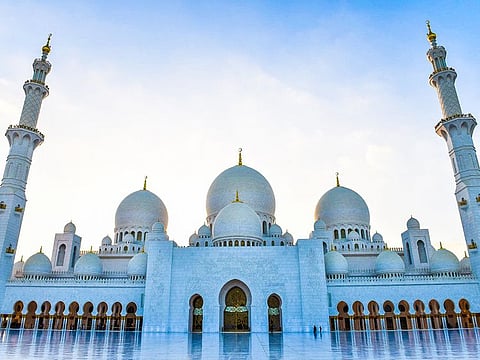Hijri New Year: How it marks a new beginning
The Islamic Calendar teaches the believers to stay hopeful under all circumstances

Islamic Calendar depends on the movement of the moon. It is almost eleven days shorter than the solar calendar. The Islamic Calendar, also known as the Hijri Calendar, is named after the Hijrah or migration of the Prophet of Islam from his birth city of Mecca to Medina (previously known as Yathrib).
The Arabic word Hijrah refers to ‘departure’ or ‘flight’ and the consequent ‘separation’. The term refers to the departure of the Prophet of Islam from Mecca to Medina in 622AD. The Prophet of Islam announced his Prophethood in 610AD, which was faced with opposition by some in Mecca. Despite the opposition, the Prophet of Islam and his companions continued the preaching efforts unabated.
Eventually, the opposition leaders unanimously devised a plan to arm young men from the different tribes against the Prophet. In this way, they wanted to ensure that a single tribe does not bear the blood responsibility, and the onus rests with all the tribes, as was the prevalent custom in Arabia in those days.
As recorded in the Hadith traditions, God pre-informed the Prophet of Islam and ordained him to migrate. The Prophet left the house and his birth city of Mecca with Abu Bakr, a close companion, and embarked on the perilous Hijrah journey.
When the Meccan tribal leaders realised that the Prophet of Islam had left, they sent a group of assassins after him. On the way to Medina, the Prophet and his companion Abu Bakr sought refuge in a cave at the mountain of Jabal al-Thawr. Finally, after almost twelve days, they reached Medina.
A milestone in the history of Islam
Hijrah is not an ordinary event in the history of Islam. It presented a model of patience and avoidance of conflict, even at the cost of migrating from the birth place.
This event illustrates the immense importance that Islam lays on maintaining peace, and through Hijrah, the Prophet of Islam laid the foundation of a peaceful course of action. It was for this reason that this event holds a significant position in the history of Islam.
Later, as the Caliphate grew and reached far and wide, the need to have a uniform calendar emerged to effectively govern the everyday affairs of the state and unify the lands. As per scholars, the Second Caliph Umar ibn al Khattab tasked his Council to set up the Islamic Calendar.
The Council began to brainstorm on the details of such a Calendar and to determine its starting date. The team prepared several ideas and proposed to mark events like the birth of the Prophet of Islam, the date of the first revelation of the Quran, and other highlight events to mark the beginning of this Calendar.
Then, Ali ibn Abi Talib proposed to start the Islamic Calendar from the date of Hijrah. Several deliberations took place, and eventually, Caliph Umar decided to adopt the date of Hijrah as the start date of the Islamic Calendar. The Hijri Calendar came into being approximately seventeen years after the journey of the Prophet.
The cultural impact of the development of the Hijri Calendar was significant. It united the lands across the Arabian Peninsula that were previously marked by differences.
A matter of great wisdom
The selection of the date of Hijrah as the start of the Islamic Calendar was a matter of great wisdom. This is because Hijrah was not simply an act of relocating from Mecca to Medina. It was a step to find a more suitable place to continue the work. This event intensified the ongoing efforts and became a remarkable milestone in the history of Islam.
The Hijri calendar is a beacon of hope. It teaches the believers to stay hopeful under all circumstances. The situation might appear to be adverse and life-threatening, like being trapped in a cave, but those who are steadfast in their approach shall emerge stronger.
The Islamic Calendar is also a manifestation of how non-confrontation is the only gainful approach in life. By adopting a course of non-confrontation, one can try to resolve the problem in the best possible manner.
We must not allow any excuse to disrupt peace in society. In other words, the start of the new year reminds us to renew the resolve that peace is of paramount importance and that anything can be given up for the sake of peace, but peace cannot be given up for the sake of anything.
Raamish Siddiqui is a lawyer, author and Islamic thinker. Twitter: @raamishs








